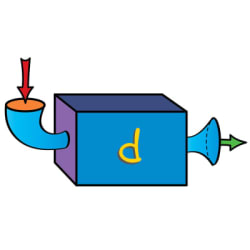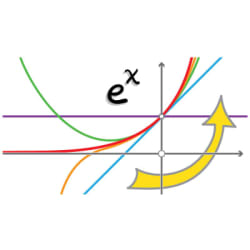Images
Calculus is one of the grandest achievements of human thought, explaining everything from planetary orbits to the optimal size of a city to the periodicity of a heartbeat. This brisk course covers the core ideas of single-variable Calculus with emphases on conceptual understanding and applications. The course is ideal for students beginning in the engineering, physical, and social sciences. Distinguishing features of the course include: 1) the introduction and use of Taylor series and approximations from the beginning; 2) a novel synthesis of discrete and continuous forms of Calculus; 3) an emphasis on the conceptual over the computational; and 4) a clear, dynamic, unified approach. In this fourth part—part four of five—we cover computing areas and volumes, other geometric applications, physical applications, and averages and mass. We also introduce probability.
Topics:
Formats:
Part of resource:
Similar resources
As America’s first university, Penn has a history that dates back to 1740 and shares many ties with the colonial city of Philadelphia and the birth of our nation.


Calculus: Single Variable Part 2 - Differentiation

Introduction to Spreadsheets and Models

English for Journalism

Calculus: Single Variable Part 1 - Functions

企业金融概论(中文版)











